It is with much gratitude and admiration that we celebrate the jury alumni members of the Core77 Design Awards.
- All Categories
- A/V & Photography Equipment
- Apps & Platforms
- Branding & Identity
- Built Environment
- Commercial Equipment
- Consumer Product
- Consumer Technology
- Crowdfunding
- Design Concept
- Design Education Initiative
- Design for Social Impact
- Emerging Technologies
- Furniture & Lighting
- Gaming Accessories
- Health & Wellness
- Home & Living
- Interaction
- Lifestyle Accessories
- Open Design
- Packaging
- Personal Accessory
- Robotics
- Service Design
- Speculative Concept
- Speculative Design
- Sports & Outdoors
- Sports & Recreation
- Strategy & Research
- Sustainability
- Tools
- Tools & Work
- Toys & Play
- Transportation
- Visual Communication
Jury Alumni
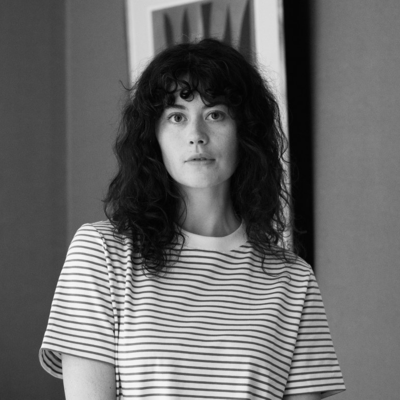
Holly Friend
Deputy Foresight Editor, The Future Laboratory
2022 Speculative Design Jury Member
Holly Friend is a trend forecaster and futurist obsessed with consumer behaviour. As The Future Laboratory’s deputy foresight editor and in-house Generation Z expert, her work shapes the trends intelligence platform LS:N Global, including micro and macro trend reports, renowned Trend Briefing events and Futures Forums. As well as being quoted by The Guardian, The Times and Dazed, Holly also consults on projects for some of the world’s leading brands and presents insight-packed keynotes at industry events around the world.
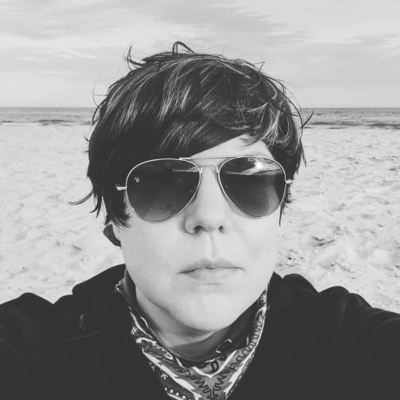
Doc Martens
UX Designer, Teach for America
2022 Speculative Design Jury Member
Doc Martens is a designer, creative technologist, maker, teacher, lifelong student, and geek working to help people embrace the potential of speculative practice for building futures-agency, the ability to act upon our preferred futures in a complex world.
They are a UX Designer at Teach For America by day and serve on the Design Futures Initiative Board by night. They also organize the Speculative Futures NYC meetup and publish SciFly, a newsletter connecting people to global events & resources related to speculative design, art, and technology. Most recently, they helped develop and teach a new speculative futures framework, Futures x Design.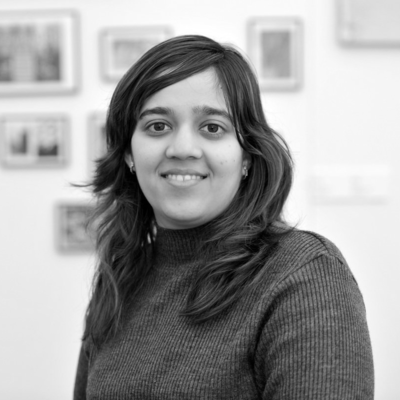
Mansi Parikh
Founder, Future Tense Inc.
2022 Speculative Design Jury Member
Passionately Curious, a Reverse Superhero (in defiance of the superhero norm, she attempts her world building & saving by day), Mansi is the Founder of Future Tense Inc., an award-winning futurist and NGFP Fellow. A consummate generalist she experiments in the liminal spaces between the past, present & futures, real and imagined with projects like Variations on Tomorrow and collectives like the Diaspora Futures Collective. A full-stack strategist she researches culture, designs innovative business models, and does scenario planning for brands like Playboy, Bacardi, The Scotch Malt Whisky Society, UK’s largest warranties provider, etc. and social impact orgs like Balipara Foundation.

Dr. Deepa Butoliya
Assistant Professor, Stamps School of Art and Design, University of Michigan
2021 Speculative Design Jury Captain
Dr. Butoliya is a researcher and design educator based in Ann Arbor, Michigan. Her research is located at the intersection of models of knowledge and critical thinking emerging from multiple and global perspectives. She researches critique in design from pluriversal perspectives- especially grassroots critical practices in design. She has a background in design and architecture with a career spanning 15 years in multiple roles as an industrial designer, researcher, and educator across two continents. She wants to help create a sustainable, equitable, and inclusive environment for societies with local awareness and a global vision.

Ti Chang
Co-founder & VP of Design, Crave
2021 Speculative Design Jury Member
Ti Chang is a design activist-entrepreneur and activist bridging modern design and activism. She is co-founder and VP of Design of CRAVE, a San Francisco-based company specializing in aesthetic pleasure products. Ti leads the design vision for the company’s full line of products which has won international design awards and has led CRAVE to mainstream partnerships with the likes of Nordstrom, MoMA Design Store, Goop, and Saint Laurent.
Ti is best known for her design of the Vesper vibrator necklace in 2014, an iconic necklace that symbolizes female empowerment and creating conversations to normalize pleasure.
Ti holds an M.A. in Design Products from the Royal College of Art in London and a B.S. in Industrial Design from the Georgia Institute of Technology. In 2021, Ti co-founded Design Allyship (designallyship.com) to provide anyone with actionable resources to improve the condition of historically marginalized designers in the industrial & product design industry.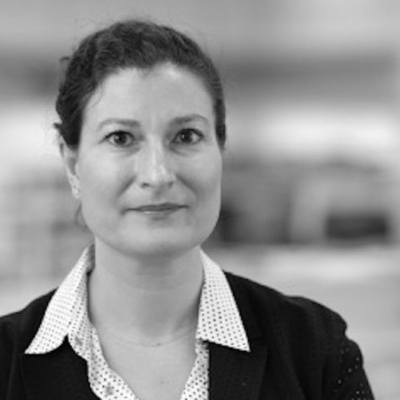
Laura Forlano
Associate Professor of Design & Director of Critical Futures Lab, Illinois Institute of Design
2021 Speculative Design Jury Member
Laura Forlano, a Fulbright award-winning and National Science Foundation funded scholar, is a writer, social scientist and design researcher. She is an Associate Professor of Design at the Institute of Design and Affiliated Faculty in the College of Architecture at Illinois Institute of Technology where she is Director of the Critical Futures Lab. Forlano’s research is focused on the aesthetics and politics at the intersection between design and emerging technologies. Over the past ten years, she has studied the materialities and futures of socio-technical systems such as autonomous vehicles and smart cities; 3D printing, local manufacturing and innovation ecosystems; automation, distributed labor practices and the future of work; and, computational fashion, smart textiles and wearable medical technologies. She is an editor of three books: Bauhaus Futures (MIT Press 2019), digitalSTS (Princeton University Press 2019) and From Social Butterfly to Engaged Citizen (MIT Press 2011). She received her Ph.D. in communications from Columbia University.
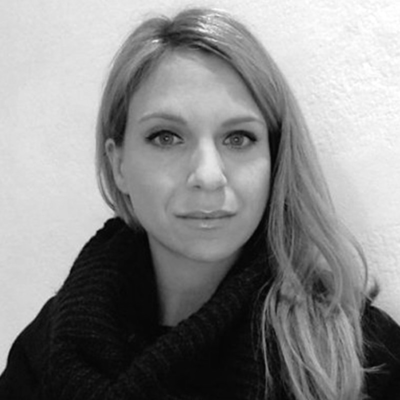
Veronica Ranner
Designer | Artist | Ph.D. Candidate, Royal College of Art
2021 Speculative Design Jury Member
Veronica Ranner is an artist, designer and researcher, working transdisciplinary on the intersections of design, science and emerging technologies. With a background in industrial design and design interactions, her research focuses on the burgeoning domain of bio-digitality and encompasses advanced biomaterials (smart materials), biomedical product and interface design as well as the development of experimental methods towards constructive-collective modes of futuring (see Polyphonic Futures).
Veronica has 10+ years experience of working internationally across science, education, art institutions and industry via funded projects, commissions and collaborations. She is a frequently invited lecturer and exhibits her work internationally, including at the Israel Museum in Jerusalem, China Technology Museum in Beijing, the National Museum Sweden in Stockholm, the V&A London, the Design Museum Gent, at Martha Herford, and the Futurium in Berlin. She currently completes her PhD at the Royal College of Art.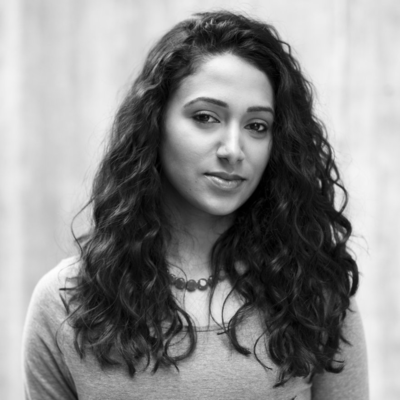
Radha Mistry
Practice Leader for Foresight, Autodesk
2020 Speculative Design Jury Captain
Radha Mistry has a background in architecture, narrative environments, and strategic foresight. As the Practice Leader for Foresight at Autodesk, Radha explores the impact of emerging technologies and how it will change the way we design and make things in the future. Prior to Autodesk, Radha focused on the Future of Work with the Steelcase Applied Research group. Her work sought out ways organizations could drive Innovation through design. Previous to Steelcase, Radha was part of the Arup Foresight + Innovation team in London and San Francisco, crafting speculative futures for global clients; and was one of the original co-founders of GOATstudio in New Orleans — bringing some “swagger” and better opportunities for young architects. Radha has also exhibited during the Lisbon Architecture Triennale and worked on design-led community engagement initiatives in cities across Europe.
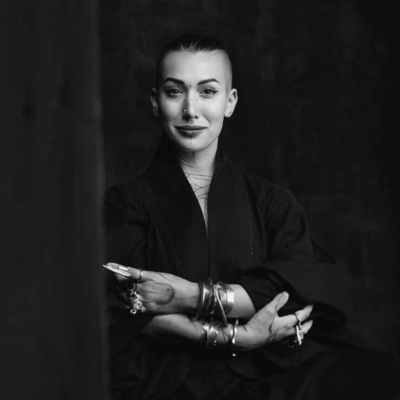
Monika Bielskyte
Futures Researcher/Futurist Designer, PROTOPIA
2020 Speculative Design Jury Member
As the Founder of Protopia Futures, Monika Bielskyte is the architect of a platform and a community to proactively prototype inspiring and actually livable future visions. Her journey as a nomadic explorer in over 100 countries has given her first-person experience of the interconnectedness between human cultural priorities and the unfolding future.
Monika was born in the Soviet Union, and grew up in the newly liberated Lithuania, before leaving the country at age 17. Her perspectives as a futurist have been shaped by the collapse of the physical boundaries of a totalitarian regime, and the opening up of the digital world – its opportunities and its harms. She currently resides in Johannesburg, South Africa – which gives her deeper insights into broader futures perspectives, beyond the imaginations of the Global North.
Monika started her career as a creative – working on movie sets in her late teens and progressively moving towards the bleeding edge of technological innovation and scientific research by her mid-20s. Her multicultural and multidisciplinary background, as well as an uncompromising focus on the intricate relationship between future fictions and real-life, have guided her on a journey that makes her voice clearly distinct in today’s foresight industry.
Monika has worked not only with established global media, tech and lifestyle companies such as Universal, Google, Nike, BBC and the WEF, but also various governments and cities. Her contributions have resonated across both industry corridors and academia, from The Royal
Society to CERN.
Robert Bolton
Principal, From Later
2020 Speculative Design Jury Member
Robert Bolton is a Canadian artist, strategist, and principal at the foresight studio, From Later. Recognizing art works and practices as powerful antennae for detecting change, Robert experiments with ways of understanding and imagining how emerging ideas, technologies and cultural phenomena may influence longer-term futures. As an advisor to decision-makers within all matter of organizations, Robert leads interdisciplinary teams, developing strategies for long-term growth and resilience. Robert was a National Science Foundation AoSL Innovation Fellow and holds a Masters of Arts in the Humanities from the University of Chicago. His essays on the future of DIY biotech have been published by MIT Press’s Innovations Journal and the Eindhoven University of Technology’s Next Nature Lab. In 2019, Robert instructed a course on strategic foresight at CityLAB: Berlin — a satellite campus of Norwich University.

Jeremy Glenn
Foresight Analyst, From Later
2020 Speculative Design Jury Member
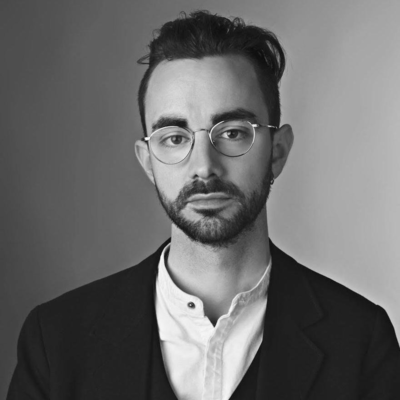
Tobias Revell
Artist & Designer, University of London
2020 Speculative Design Jury Member
Tobias Revell is an artist and designer. Spanning different disciplines and media his work addresses the urgent need for critical engagement with material reality through design, art and technology. Recent work has looked at the idea of technology as a territory, expectations of the future, rendering software and the occult and supernatural in pop culture discussions of technology.
He holds a BA Hons. (1st) in Design for Interaction and Moving Image from the London College of Communication and an MA in Design Interactions at the Royal College of Art from which he graduated in July 2012.
As well as being an internationally exhibiting artist, Programme Director of Graphic Design Communication at the London College of Communication, a founder of Supra Systems Studio and a founding member of research consultancy Strange Telemetry. He is one half of Haunted Machines, a research and curatorial project curating Impakt festival 2017 in Utrecht, NL. He is undertaking a PhD in the Design Department at Goldsmiths, University of London.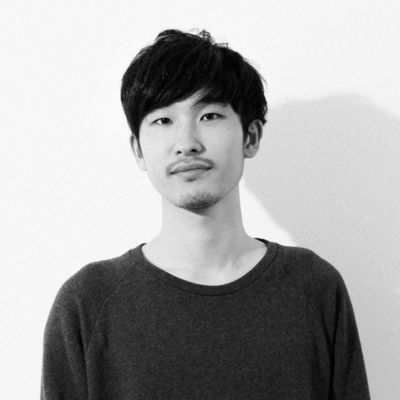
Yosuke Ushigome
Creative Technologist & Director, Takram
2019 Speculative Design Jury Captain
Yosuke is a creative technologist based in London and Director at Takram, a design innovation firm based in Tokyo and London. His primary interests are centred around emerging technologies. He probes future visions that they promise, reveals the cultural and political mechanisms behind them, and illustrates insights through making various prototypes. By doing so, he aims to facilitate in-depth understanding of the implication of emerging technologies, and encourage better-informed decision-making on our future.
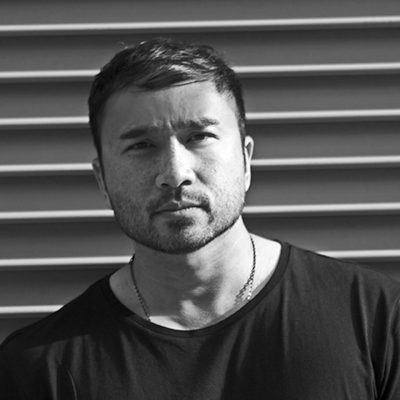
Phil Balagtas
Experience Design Director, The Design Futures Initiative, McKinsey Design
2019 Speculative Design Jury Member
Phil has been a practicing visual & interaction designer since 2001 and has experience designing across a variety of devices and platforms within non-profit, retail, advertising, and enterprise software organizations. He is currently an Experience Design Director at McKinsey & Company working with a variety of industries to transform and enhance their digital businesses and strategies. He is also the founder and organizer of the Design Futures Initiative which organizes the international Speculative Futures meetups and the PRIMER conference in the US and Europe. An educator and futurist, his events bring together designers and futurists from all over the world to teach and share strategies for designing for the future and the ethical challenges around emerging technologies.
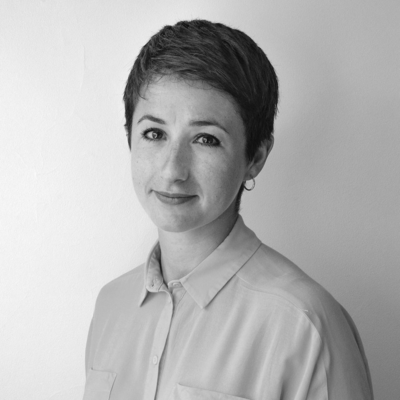
Sarah Gold
CEO, IF
2019 Speculative Design Jury Member
Sarah is a leading expert in emerging issues and trends in privacy, security and technology. She has a growing, well founded reputation for her honest commitment to changing the way personal data is managed. Sarah recently spoke to a Parliamentary Select Committee, challenging ideas about data sharing and accountability within machine learning.